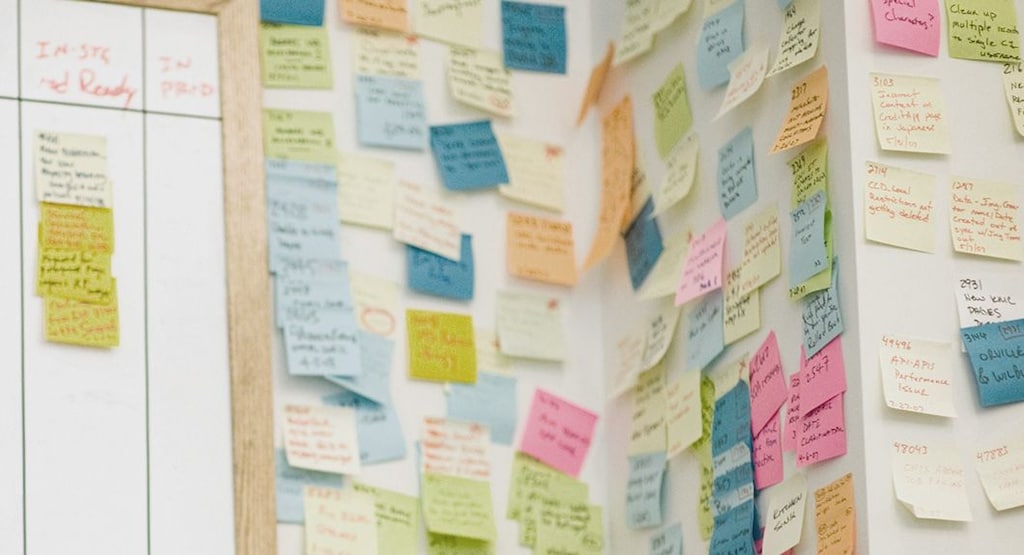It was a cold winter morning in 1999 and 26-year-old Eric Ryan was a nervous wreck. On vacation with friend and San Francisco roommate Adam Lowry, the pair was riding up a chairlift at Nub’s Nob Ski Resort in Michigan when Ryan confessed a business idea he had been keeping to himself—company that would disrupt the soap business by creating environmentally-friendly, highly designed products for the home.
“When you are in your mid-20s, it’s not cool to tell another guy you want to start a cleaning product business,” he now jokes.
Thankfully for Ryan, Lowry loved the idea and said their skill set would be a perfect match to start such a company: Ryan is a marketing expert and Lowry has a degree in chemical engineering.
The pair went back to San Francisco and began work on what would soon become Method, today a wildly successful soap company that sells non-toxic, plant-based products in retailers around the world, including Target, Whole Foods and Lowe’s.
The company has 100 employees and is a pioneer in the eco-friendly product category, recently even creating soap bottles made from recycled ocean plastic.
I sat down with Ryan to get the scoop on building such a successful company.
OF: Could you tell me about your background and how you and Lowry know each other?
ER: Adam and I grew up in Michigan sailing against each other since the age of 12. We lost touch until 1997 when we realized that we were sitting next to each other on a flight. We learned that we lived within a block of each other in San Francisco and became roommates soon after.
OF: How did you know Adam would be a good business partner?
ER: There is the cliché of never starting a business with a friend because personal relationships are based on other elements that often don’t translate to work, but we went for it anyway. It was definitely bumpy in the beginning, mainly because of our different communication styles; he is more introverted and I am more extroverted.
The good thing was that we’ve never disagreed on the mission and vision of what we wanted to achieve; over the years we learned to appreciate each other's way of thinking.
OF: What business challenges did you face starting out?
ER: In the beginning, the hardest part was the mental game. It is like coming out of the closet to admit to your family and friends that you are going to do this thing. For the rest of your life they are going to ask you about it and you want to say that it is working, that you aren’t quitting.
The mechanics of starting a business aren’t hard. What is really hard is the mental game to do it and stay with it when times get tough. We both threw up at the office at least once out of pure nervousness.
OF: How did you get the company going once you had a few sales?
ER: Our first sale was February 28, 2001. I’ll never forget that day. We even put a photo of Adam holding up the receipt in our book, The Method Method. After a few sales, we began approaching investors. Actually, on the morning of September 11th, we were scheduled to sign our Series A term sheet, which of course didn’t happen. It wasn’t until November when we closed it. At that point, we had $16 in the bank and more than $100,000 of credit card debt.
OF: When did you feel like you really made it?
ER: Yesterday? (laughs) No, really, I think as an entrepreneur there is pressure to constantly succeed in what you do and with each new success comes a new challenge. But there have been memorable milestones like when we got into our first stores in the Bay Area, when consumers started calling to tell us they loved our products, when we got Target national distribution (fall 2003) and when we opened an office in London.
OF: What does the future hold for Method?
ER: We don’t have a master plan; we believe that if you build a great company, options will be there for you. An IPO is an option as is swapping out investors for new ones and building a strategic partnership. Right now, our job is to build a kick-ass business.
OF: What are your plans for the future?
ER: I’d like to be a lifelong entrepreneur. The cool thing about Method is that new ways to innovate pop up all the time—to go into new retailers, products and categories. As of right now, I have no plans to leave this company.
OF: What advice can you offer budding entrepreneurs?
ER: First, pour all of your effort into building and recruiting the best team and talent possible. Second, break your plan into bite-sized steps. When you start a business, it looks so daunting. Do one little thing at a time and it will make you feel less overwhelmed. And third, don’t start a company. Prove that you have a good idea first. Once you have that idea, focus on how to build a company around the idea.
Which start up challenges that Eric encountered can you most relate to?
Photo credit: Courtesy subject




